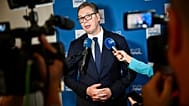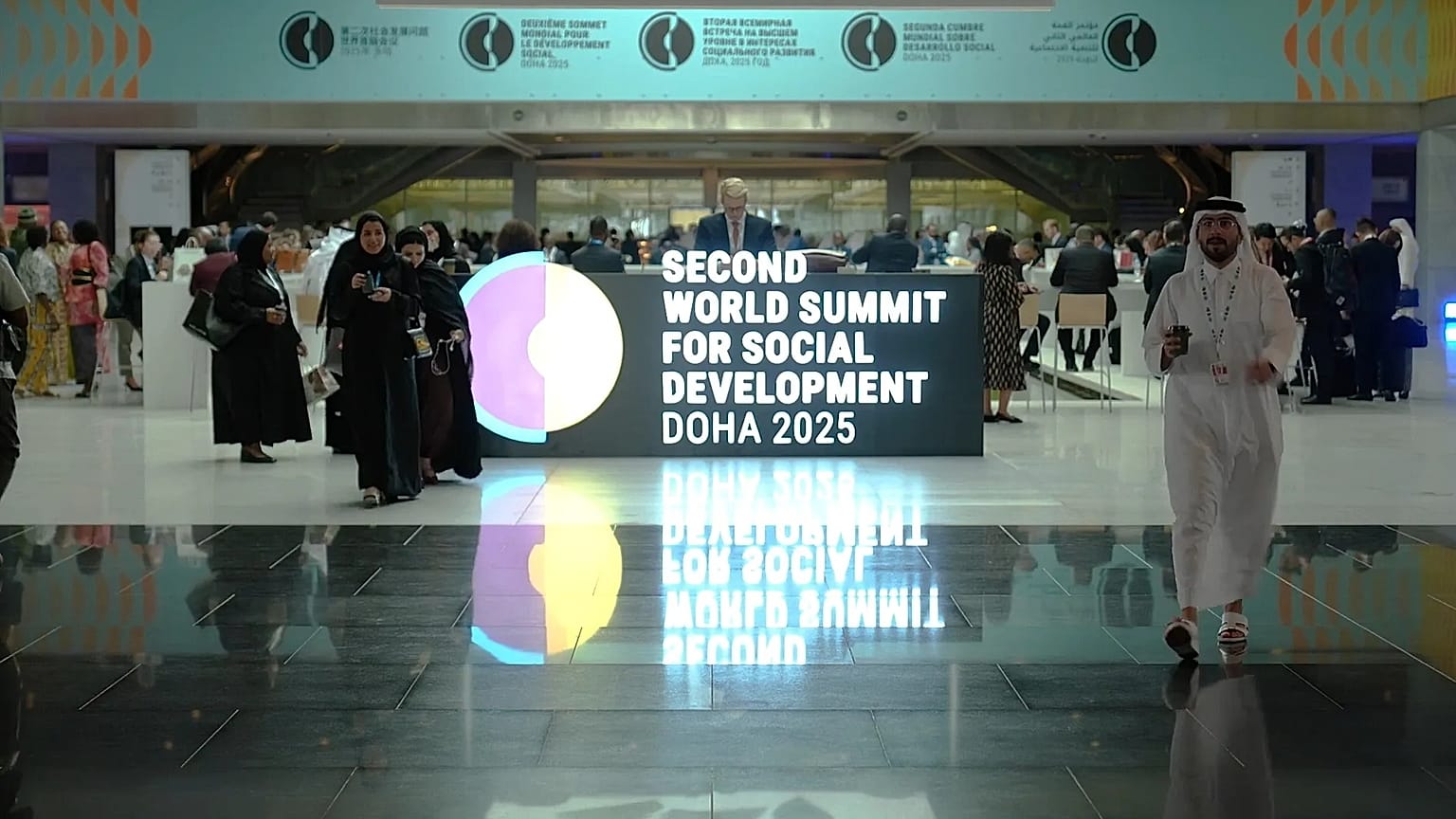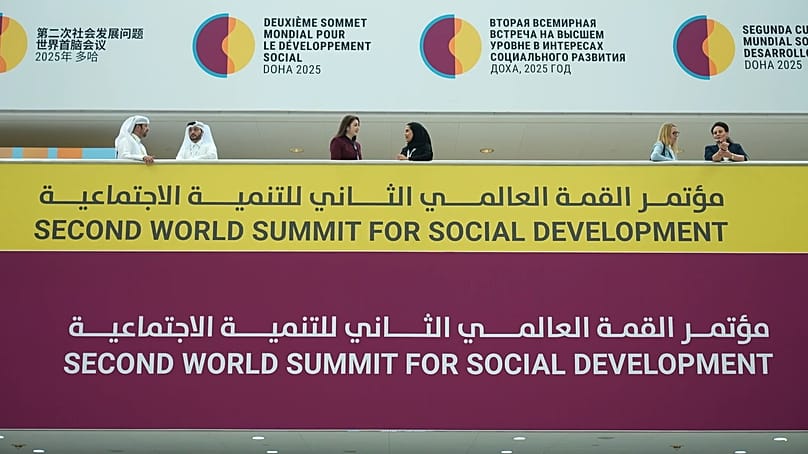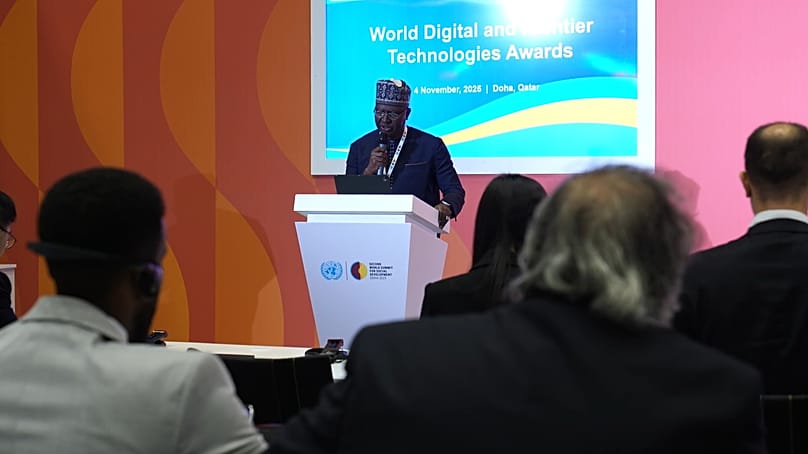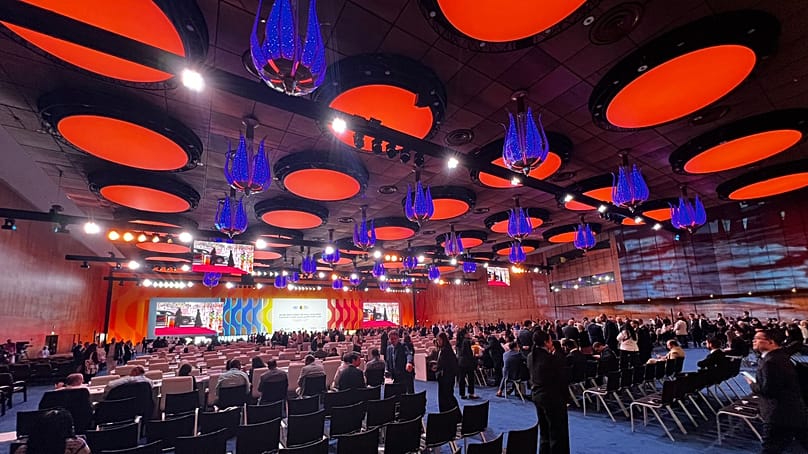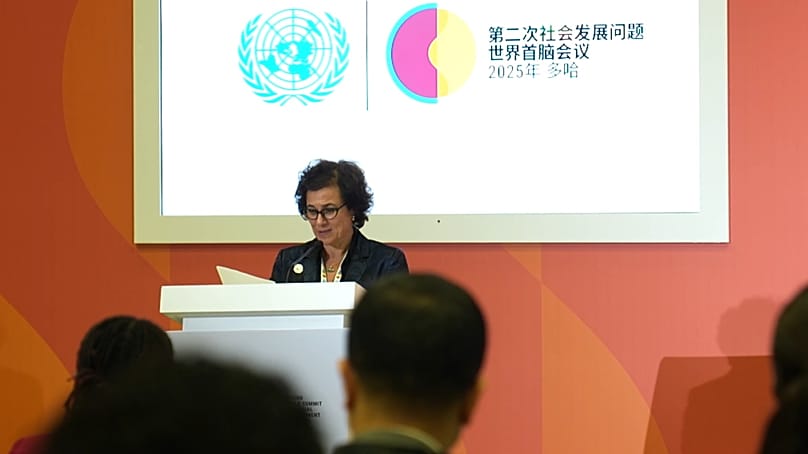Doha is hosting the Second World Summit for Social Development this week with world leaders, experts and youth meeting to tackle poverty, inequality and the future of work.
Doha is hosting the Second World Summit for Social Development this week, the first time a UN gathering of this scale has taken place outside New York or Geneva.
The summit runs from 4–6 November and is bringing together more than 8,000 participants, ranging from heads of state and government to senior UN officials, civil society networks, youth groups, academia and the private sector.
The aim is to set a credible new roadmap for reducing poverty, strengthening social protection, ensuring inclusive growth and responding to rapid technological and environmental disruption.
The meeting also marks 30 years since the first World Summit for Social Development was held in Copenhagen in 1995.
Women and work
For the European Commission, one of the most powerful levers for progress is straightforward: increase women’s participation in the labour market and enforce transparency and accountability on equal pay.
Roxana Minzatu, Vice President of the European Commission, told Euronews that Europe is now trying to structurally address wage inequality through binding transparency measures.
“We are looking at ways to stimulate women’s presence in the labour market,” she said.
“We proposed the EU Pay Transparency Directive, which creates a transparent framework showing whether men and women receive equal pay for equal work.”
She said this is not just a rights-based argument, but a macroeconomic one.
“Gender equality is part of our social model, but I think it needs to be part of our economic model as well,” she said.
Policies, she added, should not only assure welfare but support lifelong income, pensions and economic autonomy.
Qatar’s role
Hosting this summit underscores Qatar’s emerging role as a convener of global social policy debates.
The Emir of Qatar, Sheikh Tamim bin Hamad Al Thani, opened the summit at the Qatar National Convention Centre, telling delegates that social development cannot be pursued “as an option” but must be treated as an existential requirement.
Officials in Doha say the summit is aligned with the country’s new “From Care to Empowerment” social development strategy (2025–2030) and will help accelerate domestic and international work on the Sustainable Development Goals.
The message from Doha this week is that social development cannot be driven from one side of the world alone and that leadership from the Global South is now essential.
Ahead of the opening, the raising of Qatar and UN flags at the venue was intended to symbolise that social protection and social justice are not peripheral UN pillars but core global governance priorities.
Progress and challenges
Francesco D’Ovidio, Director of the International Labour Organisation’s office in Doha, said the social development trajectory over the past three decades shows that meaningful progress is possible when governments, business and civil society push in the same direction.
He pointed to a number of global improvements since 1995: the fall in child labour, higher primary school enrolment, productivity improvements and the overall halving of extreme poverty.
“There are some good news out there when it comes to indicators that have to do with the world of work,” he said. “However, there are still very, very important challenges out there.”
He also stressed that the lack of universal social protection coverage remains one of the biggest structural weaknesses in the global economy and one of the biggest risks for social stability.
International organisations estimate that more than 800 million people still live in extreme poverty today and that gaps in social protection systems leave hundreds of millions more at risk of falling backwards due to shocks, from climate disasters to conflicts, commodity volatility and job displacement linked to technology.
Summit agenda
The agenda of the summit is broad, but the headline themes are clear: poverty reduction, decent work, youth and women’s employment, climate resilience, digital transformation, and building fair, well-financed social protection systems that can withstand future shocks.
Beyond the plenary halls, multiple forums are taking place this week in Doha, including the inaugural meeting of the Global Alliance Against Hunger and Poverty, the Doha Solutions Forum for Social Development, a Private Sector Forum, a Civil Society Forum, a Parliamentary Meeting titled “Building Bridges for Inclusive Development” and youth-focused spaces with participation from networks across the Middle East, Africa, Asia and Latin America.
All of this is designed to avoid the common criticism levelled at multilateral summits: that lofty commitments are made but never move beyond papers and declarations.
Organisers say one of the major goals this week is to create structured follow-up mechanisms, so that the outcomes in Doha translate into policy change and financing decisions at national level.
Turning commitments into action
With the world gathering in Doha, expectations are high for tangible outcomes. Youth networks, NGOs and social justice movements are all calling for governments to go beyond statements and deliver real steps that fight poverty and inequality.
The summit will conclude with the Doha Political Declaration, which delegates say will outline a renewed commitment to social development. What matters now, multiple officials said, is whether member states take this language home to ministries of finance, labour, social development, education, digital policy and legislate.
Whether the Doha Declaration becomes a catalyst for delivery or simply another communiqué will ultimately determine whether the Second World Summit for Social Development will be remembered as a turning point or a missed opportunity.

